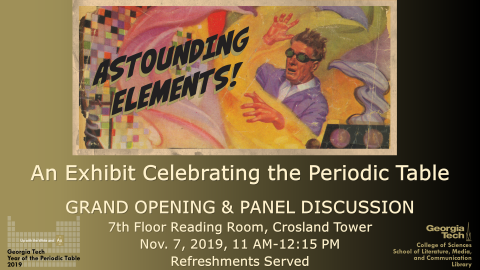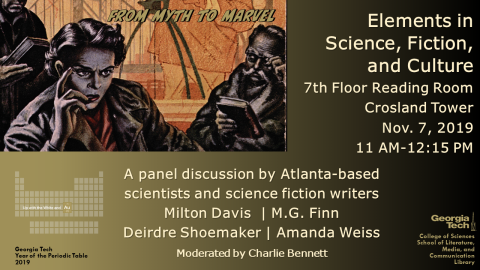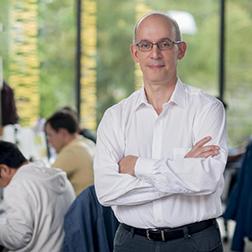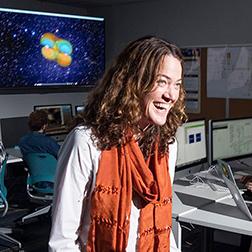event
Grand Opening of the exhibit ASTOUNDING ELEMENTS: Celebrating the Periodic Table
Primary tabs
The College of Sciences; the School of Literature, Media, and Communication; and the Georgia Tech Library invite all to the grand opening of the exhibit ASTOUNDING ELEMENTS: Celebrating the Periodic Table.
Since January, the College of Sciences has been hosting lectures, events, and activities to acknowledge the 150-year-long contribution of the periodic table to science. In collaboration with campus partners, the College of Sciences has brought the periodic table and chemical elements to the attention of the Georgia Tech community and the public through arts, athletics, academics, and fun. ASTOUNDING ELEMENTS brings many of these pieces together, including:
- Elements in science fiction, in collaboration with the School of Literature, Media, and Communication
- Periodic table makeover: design and prototypes, in collaboration with the School of Industrial Design, College of Design
- Art inspired by the periodic table and chemical elements, in collaboration with the Georgia Tech Office of the Arts
- Scavenger Hunt: buildings and element partners, in collaboration with various building managers on campus
- Favorite elements of Georgia Tech students, faculty, and staff
The exhibit will formally open with remarks from Ameet Doshi, Library Director of Service Experience and Program Design; Karen Head, associate chair of the School of Literature, Media, and Communication; and Susan Lozier, Dean of the College of Sciences.
Immediately following the opening remarks is a panel discussion: From Myth to Marvel: The Role of Elements in Science, Fiction, and Culture
The International Year of the Periodic Table has brought well-deserved attention to the periodic table and the chemical elements. As the world celebrates 2019 the 150th anniversary of the periodic table, chemical elements have never been so central to the global imagination. Just look at recent blockbuster films revolving around vibranium and infinity stones.
But did chemical elements really ever go out of style?
Moderated by Georgia Tech librarian and North Avenue Lounge radio host Charlie Bennett, this panel discussion brings two scientists and two science fiction authors together to explore how science and art have long influenced one other while shaping public understanding of the periodic table and chemical elements and their role in our everyday lives.
Georgia Tech physicist Deirdre Shoemaker and chemist M.G. Finn will have a conversation with Milton Davis, chemist and award-winning author of nineteen novels and editor of nine anthologies, and Amanda Weiss, an up-and-coming science fiction and fantasy author who teaches Japanese at Georgia Tech. Through their conversation, we hope to get a closer look at how new — and sometimes very old! — ideas about how the world works circulate through science, fiction, and culture at large.
About the Discussants
Charlie Bennett is the public engagement librarian and economics specialist at Georgia Tech. He holds a Master’s in Library and Information Science from Valdosta State University, and a B.S. in Economics and in Science, Technology, and Culture from Georgia Tech. His research interests include the role of the library in civic life and scholarly communication to the general public. Bennett produces and co-hosts the rock’n’roll library show "Lost in the Stacks" and the talk show "The North Avenue Lounge," both on WREK Atlanta, as well as the media podcast "Supercontext." The first science fiction he can remember reading is the Tripods trilogy by John Christopher, and he’s been fascinated by the genre ever since.
Milton J. Davis is a black speculative fiction writer. He is the author of 17 novels and editor or co-editor of seven anthologies. He owns MVmedia, LLC , a small publishing company specializing in science fiction, fantasy, and "Sword and Soul." Davies is also the technical director of Hill Manufacturing, a company specializing in maintenance chemicals and products. As a research chemist, he has developed polymers for the textile, janitorial, and computer industries. In 2004, he received a U.S. patent for a cleaning solvent and dispenser pen designed to remove conformal coatings and adhesives from circuit boards and other electrical equipment.
M.G. Finn is a professor and chair of Georgia Tech’s School of Chemistry and Biochemistry, a faculty member in the School of Biological Sciences, and the James A. Carlos Family Chair for Pediatric Technology. In his research, his laboratory develops new vaccines, ways to find and kill cancer cells, new materials for drug delivery and membrane-based separations, and ways to evolve molecules with desired functions. He is the editor-in-chief of the journal ACS Combinatorial Science. His science fiction inspirations are decidedly old-school, ranging from Ray Bradbury to Ursula K. Le Guin to Dan Simmons.
Deirdre Shoemaker is the Dunn Family Professor of Physics in Georgia Tech’s School of Physics. She is the director of the Georgia Tech Center for Relativistic Astrophysics and associate director of the Institute for Data Engineering and Sciences. Black holes, spacetime wrinkles and gravitational waves — understanding these and other aspects of gravity drives Shoemaker’s research. She is a member of the Astronomy and Astrophysics Advisory Council and the NASA LISA Study Team. She is also a member of the LIGO Scientific Collaboration, which detected gravitational waves for the first time on September 14 2015, ushering in the era of gravitational wave astronomy. The strange and wondrous predictions of Einstein’s theory are playing out in the universe, and Shoemaker is watching.
Amanda Weiss is an assistant professor of Japanese in the Georgia Tech School of Modern Languages. Prior to her work at Georgia Tech, she taught courses on East Asian media and society at Earlham College, Emory University, and Rikkyo University in Tokyo. She is completing her first book, "Han Heroes and Yamato Warriors: Competing Masculinities in East Asian War Cinema," based on her doctoral research in the University of Tokyo. She has started a second project, on the contemporary Japanese remembrance of Manchukuo, the puppet state of the Empire of Japan from 1932 until 1945.
Groups
Status
- Workflow status: Published
- Created by: A. Maureen Rouhi
- Created: 10/12/2019
- Modified By: A. Maureen Rouhi
- Modified: 10/21/2019
Categories
Target Audience







